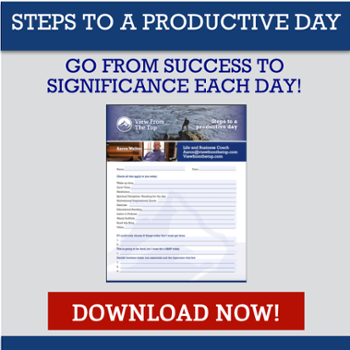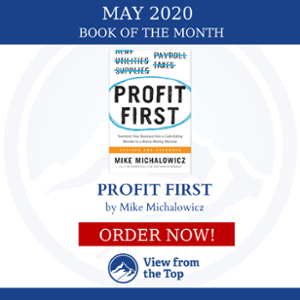When I started Iron Sharpens Iron, one thing I knew about mastermind groups is they’re binding. The level of transparency, authenticity and vulnerability you require will weed out a lot of applicants who aren’t ready to go the distance. You don’t have to “have it all together” to be in ISI, but you do need to prepare for a marathon, not a sprint.
Since we’re studying Brian Moran’s book, The 12-Week Year, I think it’s time we discussed our reluctance to make commitments with time. I read somewhere that a “commitment” is “a state of being bound emotionally or intellectually to some course of action.” The problem with this isn’t the idea itself. It’s how commitments collide with all the other things we have in our lives, like family or faith, that scares us.
I can relate to that, as a lifelong Christ follower in pursuit of a healthy marriage and family. I learned the hard way that putting business success ahead of important relationships will alienate the people you love. I’ve said it many times, but it can’t be stated enough: I came home one day with a pocket full of money to a house full of strangers.
TIME IS DIFFERENT FROM MONEY
I appreciate time commitments, crazy as it sounds. Unlike money, where you can get a “do-over” or second chance, time is 100 percent “use it or lose it.” Once it’s gone, it’s gone. Professional sports shows this, because when the clock hits “zero,” it doesn’t matter whether your team is surging with momentum and you’re within inches of the winning touchdown. All that matters is “who has the lead.”
Let’s be honest, though - if you’re starting a mastermind business, you need to qualify potential members based on willingness to make a commitment of time, as well as money. Don’t put yourself in the position where you “need” to get people signed up, so you can pay your bills. Mastermind groups online are best started by established business professionals in the position to play the “long game” of persuasion with members who hesitate or procrastinate for a while.
STATED AND HIDDEN INTENTIONS
Brian spends some time in The 12-Week Year talking about people’s intentions, and how they usually fall in one of two categories. For this discussion, I want to show you how they parallel to decisions we make about our time.
Stated intentions would compare with the reasons people tell you they don’t feel an urgent or important need to be part of your online mastermind group. They don’t usually word it that way, however. Typically they’ll say something like, “I don’t have the time.” Now, we’ve probably heard the generic response to this. You’ve seen the memes that say, “People always make time for things they consider important.”
That’s true, but why wouldn’t membership in a mastermind group be considered important? Leaving aside people already active in other groups, or working with business coaches, what is clouding these people’s judgment? My educated guess is nothing, specifically. They aren’t cornered by any particular whale of an activity swallowing 95% of their time. They’re trapped because they have too much clutter in their daily lives. A time commitment feels impossible when they’ve said “yes” to too many things.
HIDDEN TREASURE
Now, if you’ve got a coach or mentor hat you can wear, let’s be willing to accept the face value objection for the time being. The hidden intention here is fear of losing control over what people think is the remaining five percent of their calendar. “I don’t have time” means “If I put one more thing on the calendar, I’ll go crazy.”
But as the leader of a mastermind online that utilizes The 12-Week Year, you have an answer for that! Let me take just a moment here to tell you that if you decide to invest in our mastermind startup tool, The Mastermind Playbook, The 12-Week Year comes built-in.
Anyway, with a person like this, you now need to make a switch and probe what’s got someone so busy. The truth is, I don’t know of a single member of our mastermind groups who isn’t busy. I’ve never met a stay-at-home-mom who isn’t busy. I know very few retirement age couples who aren’t busy. The truth is usually that they’re juggling too many priorities … and The 12-Week Year can help them restore balance in their lives. You just need an occasion to teach them.

COMMIT TO GAIN COMMITMENT
I know busy-ness isn’t the only reason people’s schedules lack margin. I know there are parents with legitimate situations like special-needs children or aging parents requiring extra care. I know high-ranking corporate executives and public figures tend to have significant portions of their schedules spoken for … shoot, half the time my schedule is planned out and I’m the last to know!
But most of the time, you have an opportunity to make an up-front commitment to people who are afraid of committing. By helping them for free with what you’ve learned from The 12-Week Year, you’ll be able to model the life of a prolific, productive entrepreneur. If you know how to ask the right questions, you’ll soon discover they’ve fulfilled another famous saying. “We overestimate what we can accomplish in one year, and underestimate what we can accomplish in five years.”
If you’ve been thinking of starting your own mastermind business, this is the time to get outfitted with the best tools in the business. I want to recommend The 12-Week Year, and you should also visit our website to learn more about The Mastermind Playbook.





